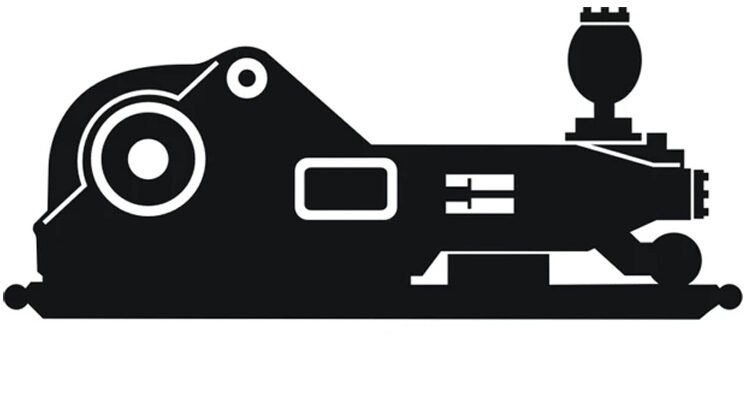Mud Pump and Mud Circulation System
🔻1. Mud Pumps:
- High-pressure pumps that circulate drilling mud through the system.
- Types: Triplex or duplex pumps.
🔻2. Mud Tanks (Pits):
- Stores drilling mud and allows for settling of solids.
- Types: Suction pit, mixing pit, and reserve pit.
🔻3. Mud Mixing Unit:
- Adds chemicals and other additives to the drilling fluid to maintain the desired properties.
🔻4. Shale Shakers:
- Removes larger rock cuttings from the mud returning from the borehole.
🔻5. Desander and Desilter:
- Separates smaller particles that pass through the shale shakers.
- Desander removes particles between 40-100 microns, while desilters handle 15-40 microns.
🔻6. Degasser:
- Removes gas bubbles trapped in the mud, which can affect drilling performance and safety.
🔻7. Mud Cleaner:
- A combination of a desilter and fine screen to further clean the mud.
🔻8. Mud Return Line:
- A pipe that returns the mud with cuttings from the well to the mud tanks.
🔻9. Rotary Hose / Kelly Hose:
- A flexible high-pressure hose connecting the mud pump to the swivel or top drive.
🔻10. Standpipe and Swivel:
- The standpipe is a rigid pipe that channels mud to the rotary hose.
- The swivel or top drive allows rotation of the drill string while maintaining a connection with the mud system.
🔶 Mud Circulation Process
🔻1. Injection: Mud is pumped from the mud tanks through the pumps and into the drill string via the standpipe and rotary hose.
🔻2. Circulation Downhole: Mud flows down the drill pipe and exits through nozzles in the drill bit, carrying cuttings upward.
🔻3. Return Flow: Mud returns to the surface through the annulus (space between the drill string and the borehole wall).
🔻4. Separation and Cleaning: Mud with cuttings passes through shale shakers, desanders, and other equipment to remove solids.
🔻5. Reuse: Cleaned mud is stored in the tanks, where it can be recirculated.
